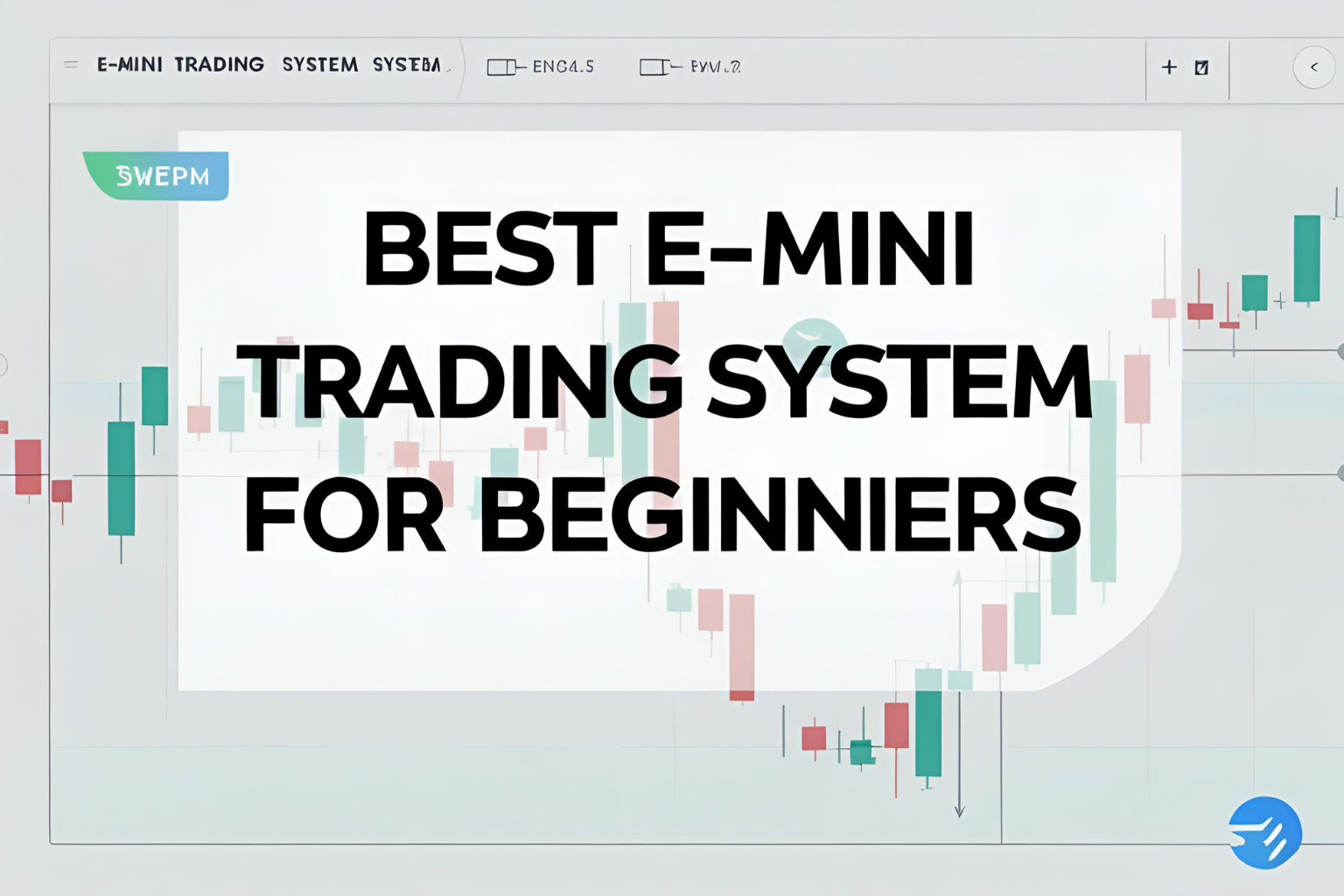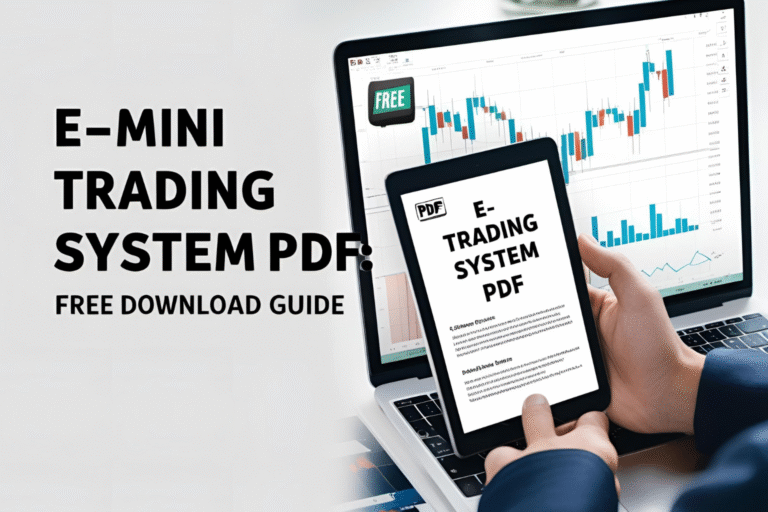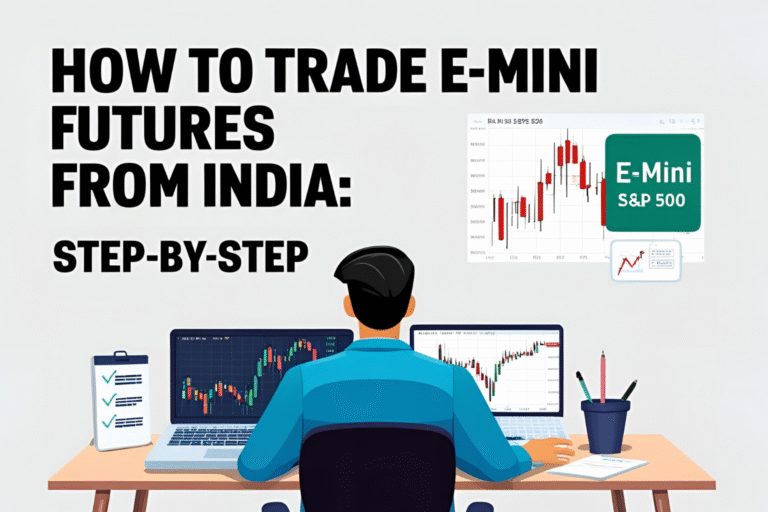Best E-mini Trading System for Beginners
If you’re new to E-mini trading, finding the right system is key to avoiding common mistakes. With so many strategies out there, it’s easy to get overwhelmed. This post highlights the best E-mini trading systems for beginners—simple, proven, and easy to follow.
Whether you’re trading the E-mini S&P 500 (ES) or Micro E-mini (MES), these systems will give you a strong foundation.
What Makes a Good Trading System?
A beginner-friendly trading system should be:
- Simple to follow
- Rule-based
- Backtested or proven
- Risk-managed
- Suitable for small accounts
Let’s explore a few top systems that meet these criteria.
1. Opening Range Breakout System (ORB)
How it works:
- Identify the first 30 minutes of price action after market opens (e.g., 9:30–10:00 AM ET).
- Set high and low as the range.
- Trade a breakout above or below the range with a stop-loss on the other side.
Why it works for beginners:
- Clear entry and exit points
- High probability setups during volatile times
- Easy to automate or track manually
📌 Tip: Works best with E-mini S&P 500 during the U.S. open (8 PM to 10 PM IST)
2. Pullback to Moving Average Strategy
Setup:
- Use 20-period Exponential Moving Average (EMA)
- Wait for the price to pull back to the EMA during an uptrend or downtrend
- Confirm with a candlestick pattern or volume spike
- Enter with the trend
Pros:
- Helps you trade with the trend
- Gives multiple opportunities in intraday sessions
- Low drawdown if used with proper stop-loss
✅ This is ideal for Micro E-mini traders with small capital.
3. Simple Support and Resistance Zones
A classic yet effective system:
Steps:
- Plot key support and resistance areas from the previous day
- Wait for price action (candlestick confirmation) near these levels
- Trade reversals or breakouts
🔍 Tools to help:
- TradingView
- CME charting tools
- Volume Profile indicators
It’s beginner-friendly because it teaches core price action principles and works on all timeframes.
4. MACD + ATR Combination Strategy
Indicators:
- MACD for trend direction
- ATR (Average True Range) for volatility and stop-loss calculation
Entry Rules:
- MACD crossover in trend direction
- Use ATR value × 1.5 to set stop-loss
This hybrid strategy helps new traders avoid tight stop-losses and stay with the trade during healthy volatility.
5. VWAP Reversion System (Intraday)
What is VWAP?
Volume Weighted Average Price. It acts like a magnet during intraday trading.
How it works:
- When price deviates too far from VWAP, watch for reversal signals
- Trade reversion back toward VWAP with small targets
Best suited for:
- Intraday scalping on Micro E-mini (MES)
- Low capital traders using 1-2 contracts
Key Rules to Follow with Any System
- Stick to one strategy at a time
- Backtest before going live
- Use fixed position sizing
- Avoid revenge trading
- Have a journal to track every trade
Risk Management Tips
- Never risk more than 1–2% of your capital on a single trade
- Always use stop-loss orders
- Focus on reward-to-risk ratio of at least 2:1
- Avoid trading during major U.S. news events unless experienced
Recommended Tools for E-mini System Traders
| Tool | Use |
|---|---|
| TradingView | Charting, indicators, replay |
| ThinkorSwim | Backtesting, live trading |
| NinjaTrader | Automated strategies |
| Position Size Calculator | Managing capital |
| Economic Calendar | News risk management |
Final Thoughts
Choosing the best E-mini trading system as a beginner doesn’t require complexity. Focus on one proven method, practice on demo, and master execution and discipline.
Once you’re confident with a setup, scale gradually using Micro E-mini contracts before trading full-size ES contracts.
FAQs
Q1. Which is the easiest E-mini strategy for a beginner?
The Opening Range Breakout (ORB) and VWAP reversion systems are simplest to start with.
Q2. Do I need paid tools for these systems?
Not necessarily. Free platforms like TradingView and demo accounts are enough to begin.
Q3. Can I automate these systems?
Yes, many are compatible with platforms like NinjaTrader or MetaTrader for automation.
Q4. How many contracts should I start with?
Start with 1 Micro E-mini (MES) contract while learning. Avoid scaling too soon.
Q5. Should I trade during U.S. hours from India?
Yes. E-mini S&P 500 is most active during 7:00 PM to 1:30 AM IST.






